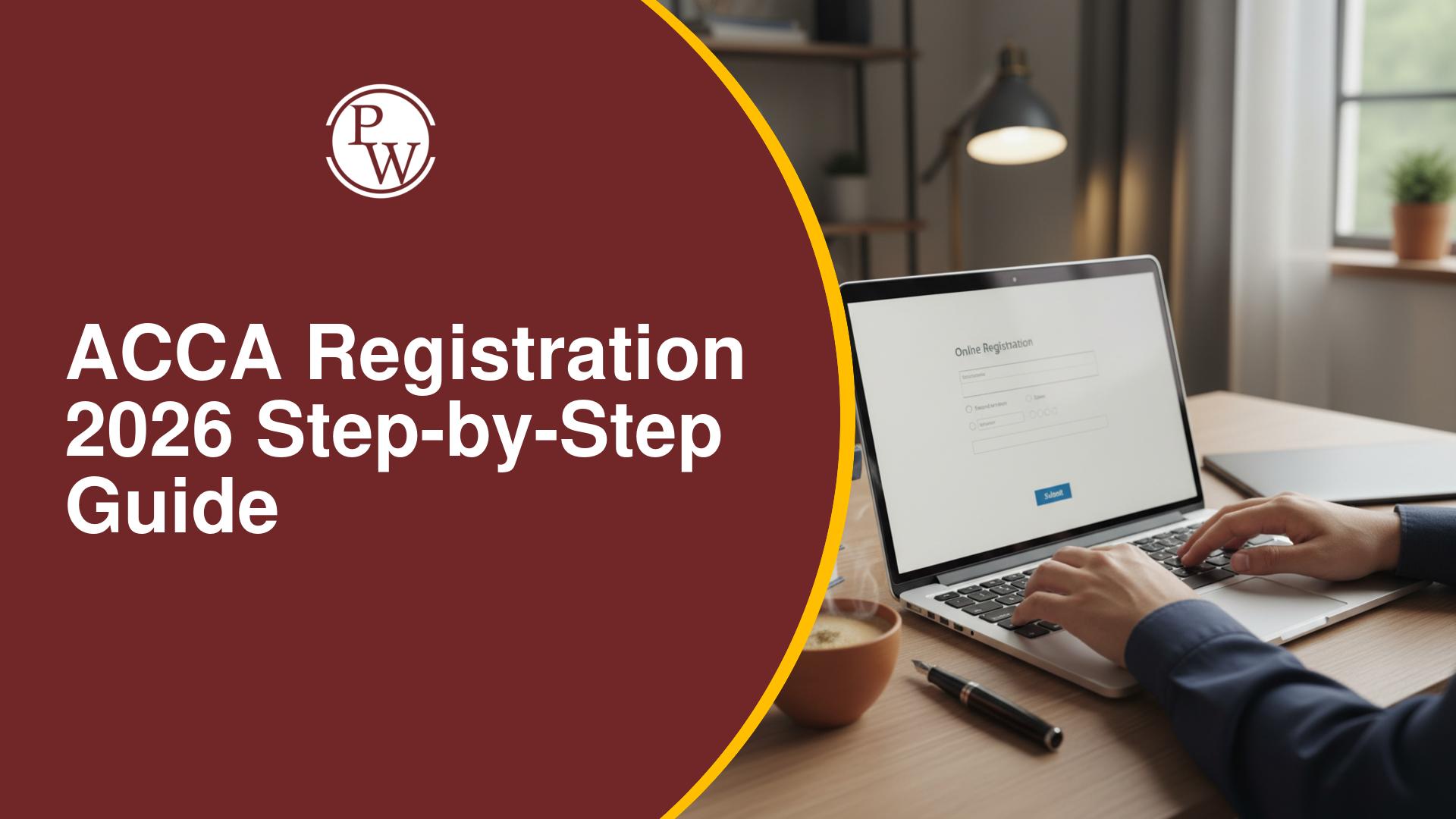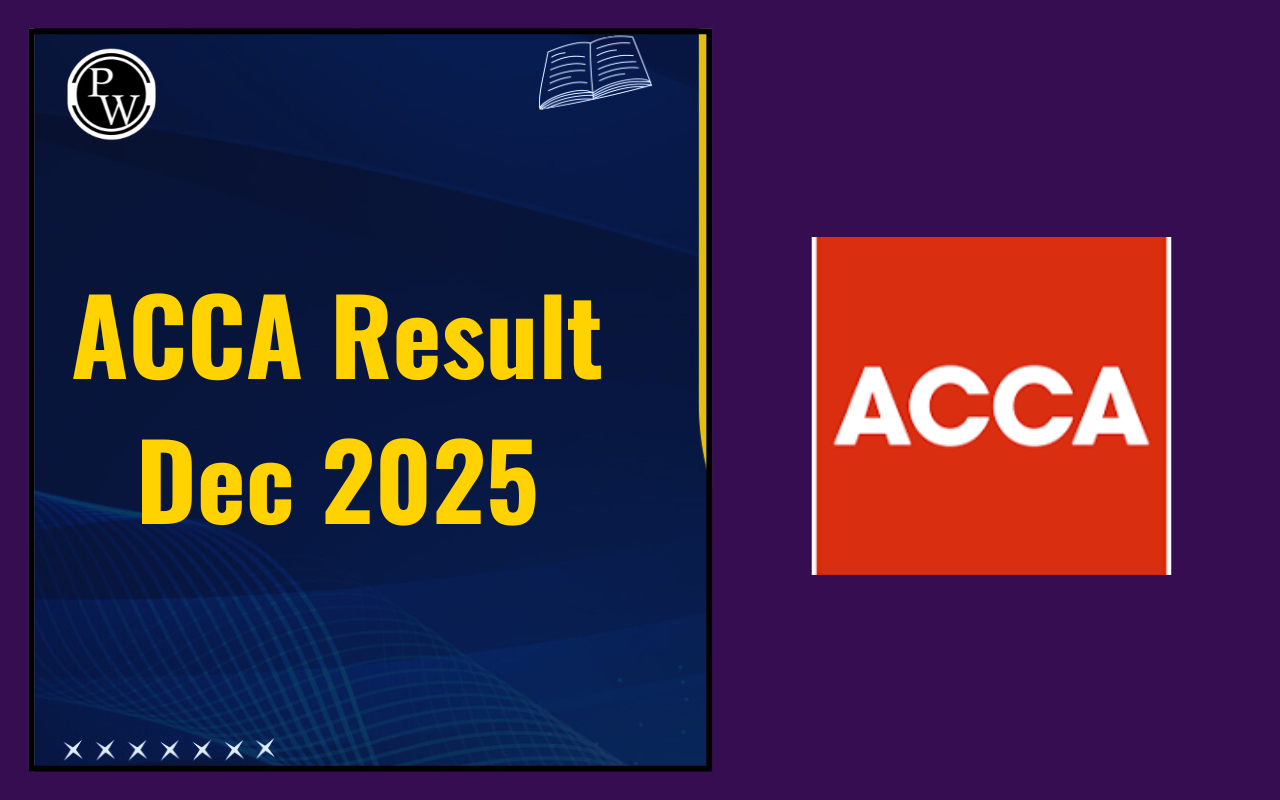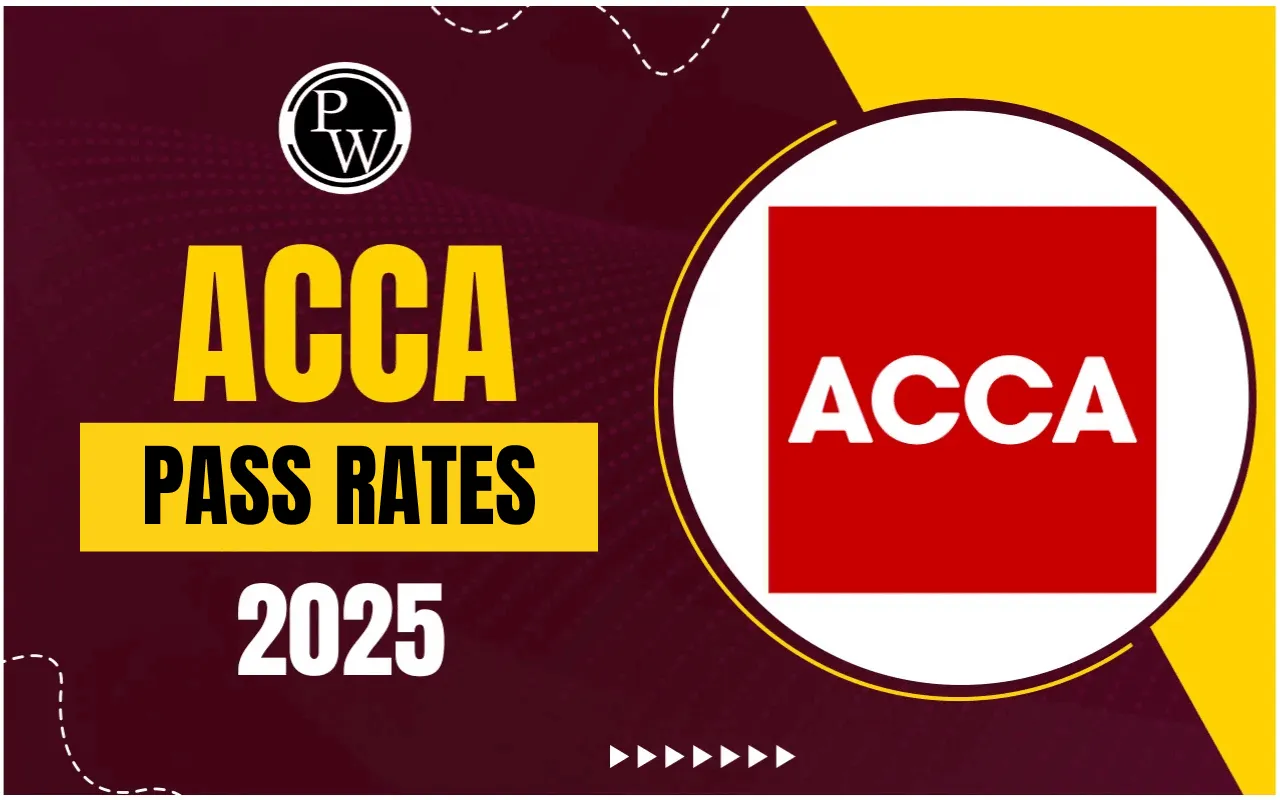
Performance Management ACCA 2025: The Performance Management (PM) exam is a crucial paper in the Applied Skills level of the ACCA qualification. This paper tests a candidate's knowledge and understanding of concepts introduced in Management Accounting. Covering the topics of performance management, the ACCA 2025 syllabus helps in creating a strong foundation for advanced studies in Advanced Performance Management (APM).
Candidates preparing for the ACCA exam must check the comprehensive syllabus and updated guidelines to strengthen their exam preparation. Additionally, students should know the exam pattern of performance management to know the question type and time marking system.
Performance Management ACCA 2025 Overview
The core aim of the ACCA PM syllabus aims at helping students apply management accounting techniques in a real-world context. The table below presents key highlights of the ACCA 2025 performance management syllabus:
| Performance Management ACCA 2025 Overview | |
| Particulars | Details |
| No. of Chapters | 6 Chapters |
| Management Information Systems and Data Analytics | |
| Specialist Cost and Management Accounting Techniques | |
| Decision-Making Techniques | |
| Budgeting and Control | |
| Performance Measurement and Control | |
| Employability and Technology Skills | |
| Type of Questions | Objective TypesDescriptive Type |
| Section in PM Exam | 3 Sections |
Also Check: ACCA Advanced Performance Management Preparation Tips
Performance Management ACCA 2025 Chapter-Wise Topics
The ACCA Performance Management (PM) syllabus for the 2025–26 exam cycle is divided into six main areas. Each area covers specific topics that reflect real-world business and financial decision-making scenarios. Below is a breakdown of the chapters and related topics candidates must focus on during their preparation:
Management Information Systems and Data Analytics
This chapter introduces the integration of technology and data in supporting strategic planning and control. It emphasises how financial professionals can benefit from digital tools to enhance decision-making and ensure data integrity. Key topics in the ACCA syllabus are:
-
Role of Information Systems: Understand how systems support planning, decision-making, and control.
-
Types of Systems: Learn about transaction processing systems, MIS, ERP, EIS, and CRM platforms.
-
Information Use and Security: Know how management data is sourced, used, and protected internally.
-
Data Visualisation: Understand how to present complex data effectively.
-
Big Data & Analytics: Explore data characteristics (5Vs), predictive analytics, and the big data pyramid.
Specialist Cost and Management Accounting Techniques
This chapter focuses on advanced costing models that help businesses control costs, improve efficiency, and remain competitive in a complex market environment. Topics candidates should focus on during ACCA preparation are:
-
Activity-Based Costing (ABC): Learn cost drivers, per-unit costing, and comparisons with traditional methods.
-
Target Costing & Life-Cycle Costing: Identify cost planning over a product’s life and tackle cost gaps.
-
Throughput Accounting: Understand the theory of constraints and throughput accounting ratios (TPAR).
-
Sustainability Accounting: Understand managing environmental costs and the accountant’s role in sustainable practices.
Decision-Making Techniques
This chapter equips students with practical tools to analyse financial data and make informed short-term and strategic decisions under various business constraints. Here are the topics candidates should prioritise when studying for ACCA:
-
Relevant Costing: Identify and apply relevant costs in decision-making.
-
Cost-Volume-Profit (CVP) Analysis: Master break-even analysis, margin of safety, and contribution ratios.
-
Limiting Factors: Use linear programming and shadow pricing for resource optimisation.
-
Pricing Strategies: Explore elasticity, marginal pricing, and various pricing models.
-
Make-or-Buy Decisions: Compare in-house vs. outsourcing options using relevant costing.
-
Risk and Uncertainty: Apply simulation, decision trees, sensitivity analysis, and expected values.
Budgeting and Control
This chapter covers essential budgeting systems and techniques used to forecast, monitor, and control organizational performance while addressing external and internal changes. Important topics of this chapter are:
-
Budget Systems: Understand flexible, zero-based, incremental, rolling, and activity-based budgets.
-
Forecasting Techniques: Apply high-low method, correlation, regression, and learning curves.
-
Standard Costing & Variance Analysis: Understand sales/mix/quantity/material/labour variances.
-
Operational & Planning Variances: Identify controllable vs. uncontrollable factors and revise budgets accordingly.
-
Behavioural Impacts: Understand how budgets and variances influence staff motivation and performance.
Performance Measurement and Control
This section of ACCA performance management focuses on evaluating and improving performance using both financial and non-financial measures in private, public, and not-for-profit organisations. Key topics include:
-
Private & Public Sector Analysis: Learn to use FPIs and NFPIs to assess business and non-profit performance.
-
Balanced Scorecard & Building Block Model: Apply structured frameworks to performance evaluation.
-
Divisional Performance: Learn ROI, RI, transfer pricing methods, and their implications.
-
Not-for-Profit Metrics: Understand how to measure performance with non-financial goals and the 3Es of Value for Money.
Employability and Technology Skills
The final chapter of the ACCA PM syllabus prepares students to use digital tools efficiently in a professional environment, with a strong focus on presenting financial data clearly and effectively. Crucial topics of this chapter are:
-
Digital Competency: Learn to use software, manipulate spreadsheets, and present data using workplace-relevant tools.
-
Response Construction: Practice typing, formatting, and presenting calculations and business reports clearly.
Performance Management ACCA 2025 Exam Structure
The ACCA Performance Management exam is conducted in a computer-based exam (CBE) format. The exam duration is 3 hours and aims to test both the technical knowledge and the real-world application of candidates. The paper consists of three main sections, covering both objective and descriptive questions.
The table below presents the overview of the ACCA Performance Management paper pattern based on previous exams:
| ACCA Performance Management Exam Pattern | |||
| Section | Question Type | Marks | Details |
| Section A | Objective Test (OT) Questions | 30 marks | 15 standalone questions2 marks each- Covers the entire syllabus |
| Section B | Case-Based OT Questions | 30 marks | 3 case studiesEach has 5 OT questions (2 marks each) |
| Section C | Constructed Response (CR) Questions | 40 marks | 2 long-form questions (20 marks each)Require descriptive and calculation-based answers |
Also Read: Demand and Supply for ACCA
Performance Management ACCA 2025 Preparation Strategies
To enhance ACCA performance management exam preparation and qualify for the exam with good marks, candidates should adhere to the following strategies:
Master Core Techniques
Begin the exam preparation by thoroughly understanding the fundamental costing methods, budgeting techniques, and variance analysis. These topics serve as the foundation for understanding more advanced topics like decision-making and performance measurement.
Use ACCA Practice Platform
Practice with ACCA’s official platform to get familiar with the exam format, specifically, the spreadsheet and word processor tools used in constructed response questions. This is crucial to manage time effectively and avoid technical errors during the actual exam. Regular use of the platform also improves candidates’ ability to interpret data and present answers professionally.
Practice Case-Based Questions
ACCA PM exam comprises case-based questions. To answer these questions accurately during the actual exam, candidates should practice them during the preparation. Additionally, candidates should practice reading business scenarios and identifying the relevant financial issues. This approach is crucial in logically structuring answers.
Link Theory to Application
Candidates should understand the practical use of each concept they study by analysing why it's relevant, how it's used in decision-making, and what its implications are in real business environments. This strategy helps candidates write more insightful answers and meet examiner expectations. Candidates can use past papers to see how theory is tested through application-based questions.
Focus on Non-Financial Aspects
Non-financial performance measures, behavioural impacts, and sustainability issues are now an important focus of the syllabus. These elements are often included in performance management or budgeting questions and can offer more marks. Candidates must ensure to cover these topics during the preparation phase.
Review Management Accounting (MA) Basics
The ACCA PM syllabus builds on knowledge from the MA topics. Therefore, candidates must revisit key topics like cost behaviour, absorption costing, and basic variances.
Performance Management ACCA 2025 FAQs
Is performance management ACCA hard?
Is ACCA PM certification worth it?
Does the ACCA PM certification expire?
How long is the ACCA PM exam?










